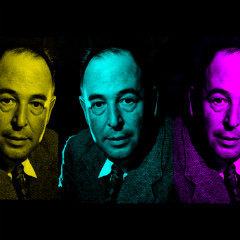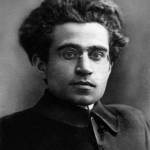
A writer for Relevant magazine is peeved that people like C.S. Lewis. Seriously. “I’m annoyed,” he said, “with the public perception and exultation that has long outlasted him.”
While granting that Lewis deserves credit for his academic, literary, and theological work, the writer pointed out that the Oxford don “was born in 1898 . . . a decade after the setting of Back to the Future III. Annie Oakley was still the most popular woman in America. In 1898, the ink was hardly dry on the patent for the radio and the Wright Brothers had never been to Kitty Hawk.”
But now “[i]t is 2013.” And, well, that just changes everything, right?
The argument hangs on the assumption that Lewis is a product of his times and has trouble speaking to our postmodern world. But the fact that Lewis is a product of his time is exactly why we should still read him. As Lewis himself argued, every age has its own unique outlook. While dead authors are just as likely to go wrong as we are, he said, they’re not likely to go wrong in the same direction, which means their perspectives can serve as a check on, and a corrective to, our own.
Books by authors like Lewis (and of course those much older, too) ensure the kind of intellectual diversity that keeps us from getting trapped in our own heads, prisoners to presuppositions we cannot critique for lack of the distance inherent to someone born in the nineteenth, twelfth, or fourth century.
Relevant’s essayist gave a weak nod to this point before landing a stiff jab on the cheek of a straw man. “Our lives can, and should, be informed by Lewis’ writings,” he said. “Future generations can, and should, read what he and others like him wrote. But to use him as the sole foundation for our cultural criticism is a shaky prospect.”
Okay, but this is specious. I don’t know anyone that uses Lewis as the sole foundation for anything. People likely to read Lewis are also likely to read many other and many different authors. But the impression given in the piece is that someone using Lewis is stranded alone on an island named Jack.
“We need to find new voices for our status updates and sermon illustrations,” he continued. “Our generation needs to add to the mix our own sages who were born in the same century we were, who can engage the same issues we face in our communities and our political and social landscape.” As if Lewis fans weren’t also reading some assortment of Tim Keller, David Bentley Hart, N.T. Wright, Gabe Lyons, Donald Miller, John Piper, Frederica Mathewes-Green, Rodney Stark, Christian Smith, Anne Lamott, Scot McKnight. . . . You get the point.
Obviously we should engage in the present. But to stress an unnatural distance from authors who died not quite fifty years ago is intellectually foolish and even perilous.
We need to more than occasionally refer to writers like Lewis as we plow ahead with the problems and questions of our own day. We should refer to them constantly and with serious contemplation. Wilhelm Röpke, Jacques Ellul, Dietrich Bonhoeffer, Dorothy Sayers, Sergei Fudel, and earlier voices like Irenaeus, Augustine, and Basil the Great should be close companions in the work we do.
A vibrant intellectual life includes thoughts that span millennia. They’re not so foreign as some insist, and their differences might just keep us from going off the rails.
















